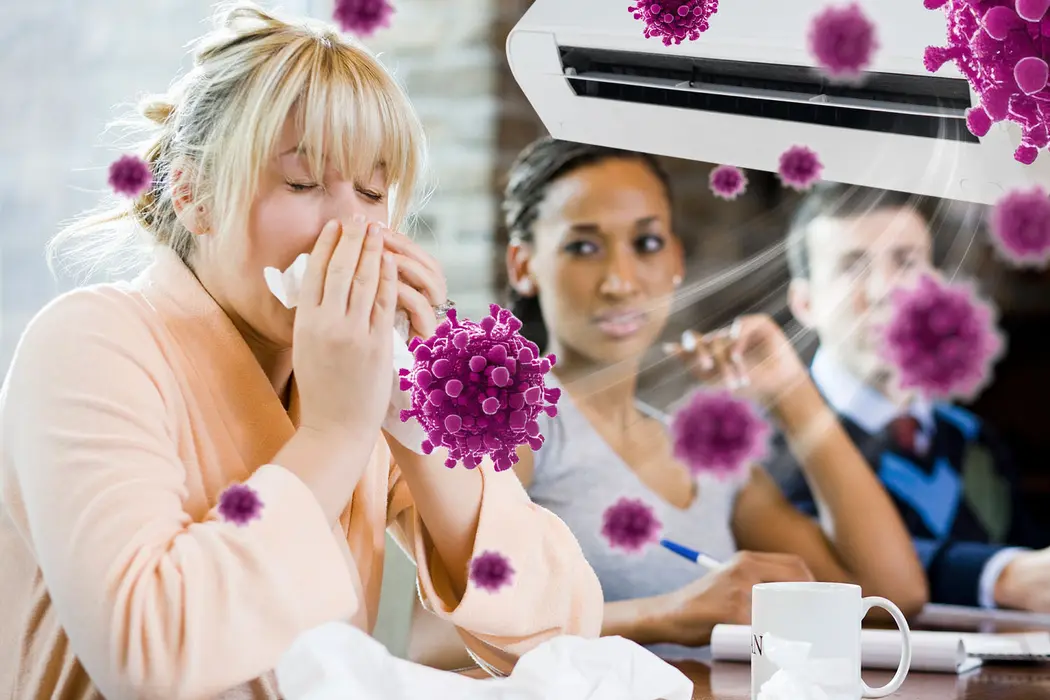T4K3.news
Air Conditioning and Sick Building Syndrome Alert
New health guidance links air conditioning to potential illness in buildings unless properly maintained.

Heat relief from cooling can come with hidden health risks when maintenance falls behind, experts warn.
Air Conditioning and Sick Building Syndrome Prompt Health Warnings
Air conditioning eases heat and humidity, but health experts warn it can also contribute to sick building syndrome when systems are poorly maintained. The NHS describes the syndrome as a cluster of symptoms that appear in a building and tend to worsen with time inside, easing after leaving. A 2023 Indian study followed 200 office workers in AC environments and found they reported more symptoms, reduced lung function and more missed days than those not in AC, suggesting prolonged exposure may be linked to health effects.
Experts emphasise that poorly maintained systems can release allergens, chemicals and microbes. Legionella bacteria, fungi and even viruses can thrive in damp, dirty ducts. The advice is clear: regular maintenance and sanitisation reduce risk, and workers should involve building managers and health authorities if symptoms appear. While AC can spread illness in some conditions, it can also help stop disease spread when properly cleaned and filtered, the article notes.
Key Takeaways
"If an air conditioning system malfunctions or isn’t properly maintained, it can become contaminated with infectious microbes."
Dr Primrose Freestone on contamination risk in AC systems
"The symptoms of sick building syndrome tend to get worse the longer you’re in a particular building, and are alleviated after you leave."
NHS description of the syndrome’s pattern
"Regularly maintained and sanitised AC can reduce circulating levels of common viruses, including Covid."
Dr Freestone on maintenance benefits for air quality
"These fungal infections can be serious in vulnerable patients such as those who are immunocompromised."
Dr Primrose on fungal risk in hospital ventilation
The piece highlights a tricky balance between comfort and health in modern offices. Cooling systems offer relief but also create a pathway for illness if filtration, humidity control and water systems are neglected. This framing invites readers to see indoor air as a health issue rather than a mere convenience.
For workplaces, the takeaway is practical: audit systems, upgrade filtration where needed, test for Legionella and ensure regular cleaning routines. Clear communication with staff about symptoms and maintenance plans is essential to prevent fears from turning into real harm. The article also raises questions about how health guidance is conveyed so people stay informed without panic or complacency.
Highlights
- Regular maintenance keeps air clean and safe
- A dirty filter is a liability
- Ventilation matters more than temperature for health
- Healthy buildings demand regular checks
Public health risk linked to air conditioning
The article couples sick building syndrome and infectious disease risk to air conditioning, highlighting Legionella, fungi and viral spread as potential hazards in poorly maintained systems. This raises concerns for workplace safety and the need for clearer guidance and investment in maintenance.
Healthy buildings require ongoing care and regular checks.
Enjoyed this? Let your friends know!
Related News

Legionnaires' disease cluster impacts NYC residents

Sweat location signals health clues

Legionnaires disease cases rise in New York

At least 25 killed in Gaza awaiting aid deliveries

Ukraine targets Moscow and Rostov rail systems

New-build homes in the UK suffer from severe overheating

Nato jets deployed as Russian drone breaches EU airspace

London overheating in new flats
